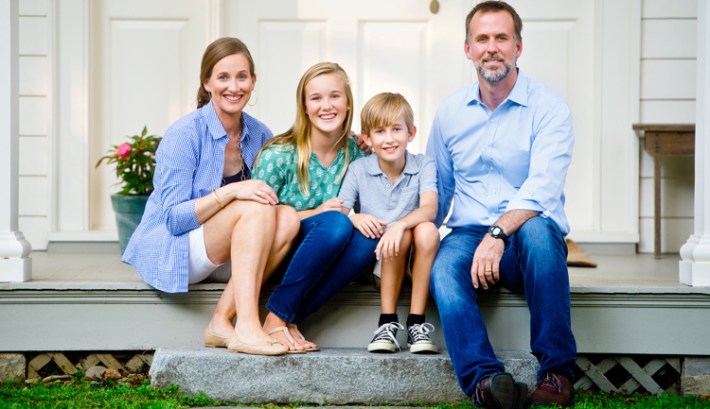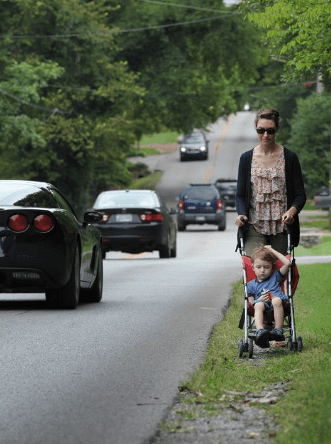Angie Henderson has been advocating for a more walkable Nashville for 17 years. Much of that time, the native Nashvillian and mother of two zeroed in on filling sidewalk gaps or finishing trail connections -- a piece-by-piece approach to improving the pedestrian network. A couple of years ago, she realized that wasn't going to be enough.
Only an estimated 37 percent (or 19 percent -- calculations vary) of Nashville's street network has sidewalks. Walking infrastructure is missing on about 1,900 miles of city streets.

"When you grow up in Nashville and you drive everywhere, that’s kind of your reality," Henderson said. "As my children got older, it just became clear to me that we’re not going to move the needle much unless we change the [sidewalk] policy."
So in 2015, Henderson decided to run for office on a safe streets platform. And she won.
One of her first moves as a Metro Council member was to push for a new sidewalk ordinance -- a citywide policy to help fill gaps in the pedestrian network.
The legislation went into effect July 1. It requires developers of single family homes to construct sidewalks if the property is within the designated "urban area" of Nashville, if they build near a commercial center, or if the property abuts another property with sidewalks. If builders forego sidewalks, they will have to pay a fee -- $178 per linear foot -- which will go into a fund for sidewalk construction in targeted areas.
The sidewalk ordinance will also close loopholes that allowed commercial developers to avoid building sidewalks, Henderson said.
Over time, the process set in motion by the bill should complete the sidewalk grid in much of Nashville. The legislation dovetails with the city's new general plan, which pinpointed key areas where sidewalk construction should be prioritized. The city estimates it will potentially generate about $8 annually for sidewalks.
When Henderson began talking to the planning department about a new sidewalk bill in February of 2016, the city was primed for the discussion. Nashville is growing fast, and many new arrivals hail from more walkable cities, according to Henderson.
"As people have moved here from other cities, it has really been helpful to the conversation." she said. "Having people come from other communities and be like, 'What the heck Nashville? What’s wrong with y’all?' I think it’s really helped us build some momentum."
But Henderson still wanted to tread carefully, so as not to anger builders who might oppose sidewalk mandates. She worked with a liaison at the local Chamber of Commerce to help mediate discussions with developers, and a number of meetings were held to get feedback from the construction industry and hear their concerns.
Some adjustments to the bill incorporated their feedback -- for instance, the legislation is designed not to mandate building isolated "sidewalks to nowhere." But ultimately, few major concessions had to be made. Thanks to tools like Walkscore, many builders already knew how much people value walkability. "There really was a groundswell around sidewalks, and I think the builders were keenly aware of that," she said. "I think they get it."
Thanks to Henderson's careful consensus building, support for the bill was nearly unanimous by the time it came up for a vote. It passed with 37 sponsors in the 40-seat Nashville Metro Council.






